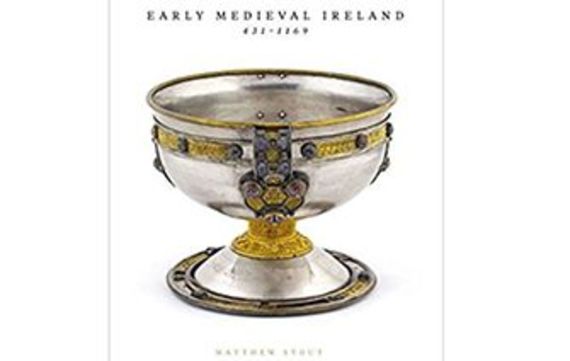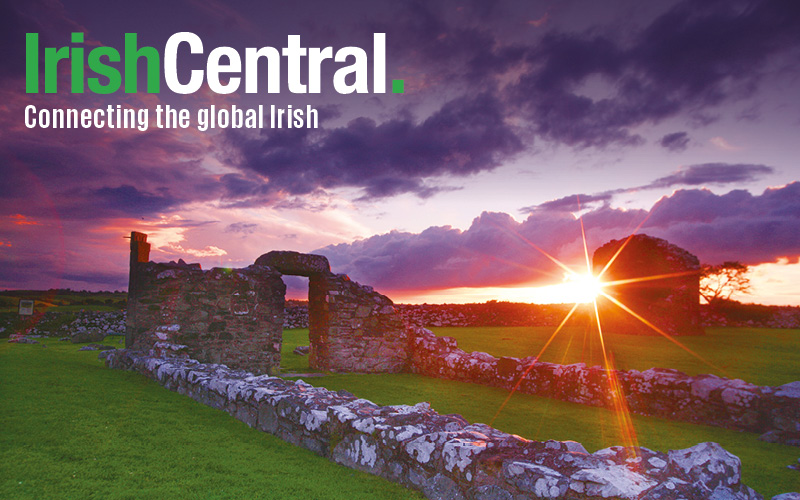Irish history isn't just one long catalog of battles and privations. In the early Middle Ages the country's reputation was enviable throughout Europe.
Even the Venerable Bede, the charmingly monikered Anglo Saxon historian, was effusive in his praise of early Ireland in his Ecclesiastical History of the English People:
“Ireland is broader than Britain, is healthier and has a much milder climate, so that snow rarely lasts for more than three days. Hay is never cut in summer for winter use nor are stables built for their beasts. No reptile is found there nor could a serpent survive; for although serpents have often been brought from Britain, as soon as the ship approaches land they are affected by the scent of the air and quickly perish. In fact almost everything that the island produces is efficacious against poison... The island abounds in milk and honey, nor does it lack vines, fish, and birds. It is also noted for the hunting of stags and roe-deer.”
Pretty Edenic isn't it? Of course the absence of snakes had a special significance for Christian readers and writers. So no wonder Saint Patrick, and not the cold climate, was given the final credit for driving them out.
Matthew Stouts scholarly and immensely readable new book 'Early Medieval Ireland 431-1169' reminds us just how important Ireland was to Europe and to civilization after the collapse of the Roman Empire.

Early Medieval Ireland 431-1169 by Matthew Stout.
Put simply the light of classical antiquity still burned brightly in this far away island whilst the continent was plunged into the Dark Ages.
Taking a holistic rather than a strictly chronological approach to the period, Stout considers politics alongside Irish church history, he also makes times for Irish art and archeology, considering the law and the literature, and rekindling the impressively bright light of this Irish golden age.
Superbly illustrated and riveting throughout, Stouts book is an ideal introduction to the history of Early Medieval Ireland that will delight both students and the general reader.
Dufour, $60.00.

Author Tony Doherty's searing and unsentimental new memoir grapples with the Troubles and his own part in them.
Derryman Tony Doherty's father was shot dead by British soldiers on Bloody Sunday, when the author of this memoir was just nine years old. The total devastation that was felt by the city after this act of inexplicable savagery was felt by the family too, and Doherty recalls in 'The Dead Beside Us, A Memoir Of Growing Up In Derry' how much his mother Eileen and his brothers and sisters struggled in the long aftermath of the killing.
“When your da dies so suddenly, killed by a soldiers bullet, it does things to your head and body that you can't really work out,” he writes. One of the things it did was snatch his childhood away long before his time.
This is a book about public and private grief then, and the fact that it never quite goes away, especially when it was brought about by an unforgivable act of violence.
There's an inevitability in all that follows. As he grows up in tandem with the outbreak of the Troubles the personal and the political become inseparable for Doherty. The whitewash of the infamous Widgery Report into Bloody Sunday later blamed everyone who was shot for their own deaths. Bloody Sunday and the publication of the report turned out to be the largest public recruitment campaign the IRA ever enjoyed.
Doherty himself joined up in 1980, after years spent marinating in his own desire for revenge. His first job was to firebomb a local store that the IRA said had colluded with the enemy. He was arrested within days for his involvement.
Doherty remembers all the good times too. The 70's of David Bowie and The Bay City Rollers and all the unspeakable craic that was had that, distilled of all its coarseness, turned into spun gold later on.
What he learned along the way was that violence begets violence. Released from prison he began the process of calling for a public inquiry into Bloody Sunday to exonerate the innocent. It took years, but eventually it culminated in the clearing of all those who had died as innocent victims, and it secured an apology from the then British prime minister, David Cameron.
But in this book Doherty contends with his history and himself in an ever evolving tale that grey mirrors the journey taken by his city and country. It's an important work because it asks hard questions of everyone who encounters it. The life he has lived to date is his most eloquent response to the challenges it presented.
Dufour, $23.00.




Comments